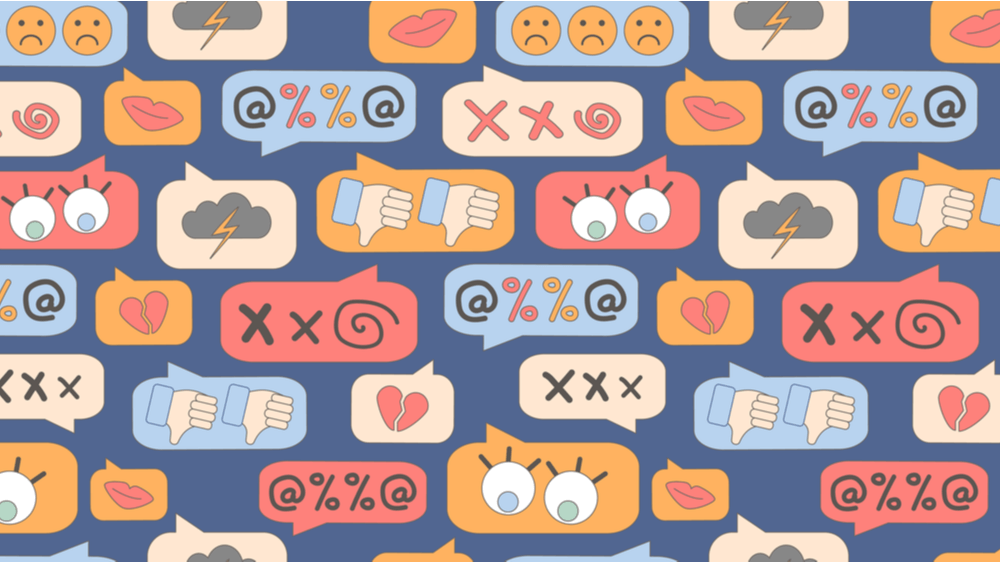The Harms of Perpetuating “Illness Fakers”
I had not long been a part of the online chronic illness community when I discovered the Illness Fakers page on Reddit. I only saw it because someone I followed was being harassed, and their content being taken apart on it.
From their victims, they would take every single post, every Instagram story, every comment, and dissect it piece by piece. They would zoom in on the tiniest details, make extensive timelines, debate chronically ill people’s very existence. They would even find the Facebook pages of family and friends.
I hated it, but after I went on it once, I couldn’t stop looking at it. I was desperately afraid of ending up on it myself, and yet there was something addicting about checking it.
Of course, I never made an account, or commented myself – I didn’t believe in what they were doing. But every little while, I’d open my browser and check new posts, scan the comments.
I was gaslighting myself constantly. I would tell myself that I wasn’t sick enough, maybe that I wasn’t even chronically ill at all. When you combined that with doctors who said they could do nothing for me, I found myself continually doubting myself.
It made me want to get sicker, to get a feeding tube or central line to be more valid as a chronically ill person – but not so ill that it could be perceived as faking it for attention.
The Reddit pages accuse their victims of having “Munchausen by Internet”, the phenomenon which the BBC documentary Sickness and Lies has focused on. It’s the idea that they are not chronically ill with conditions such as Ehlers-Danlos Syndrome or Fibromyalgia, but instead, they have internalised it and are ‘doctor shopping’ to get diagnoses or aids like PICC lines.
Sickness and Lies perpetuates the concept that chronically ill people are faking, and there is likely to be untold damage done by the documentary platforming the Reddit. To even put forward the possibility that chronically ill people are faking is forcing forward the ableism that we so often face.
Chronically ill and disabled people are likely to find their communities on the internet simply due to the nature of our conditions, which often keep us at home more than our non-disabled peers. To imply that this is causing a phenomenon of faking is extremely problematic.
Nearly all the chronically ill people featured on these Reddits are women. There is underlying misogyny within all of this. Medical sexism is a clear issue across diagnosis and treatment, and this has penetrated spaces outside of healthcare itself.
We must also remember, with regards to the concept these forums have made up – “Munchausen by Internet” – that Munchausen’s is actually a real illness. In their supposed quest to “out the fakers”, the Redditors are stigmatising yet another illness.
To me, one of the most concerning parts of this documentary is the way it is likely to drive people towards the Reddit forums. Although the documentary is somewhat more balanced, the social media advertising for it was not – to the point that after complaints, they did take down the social content (even though they doubled down about the documentary itself). We all know how many people will not watch the full documentary, and what we saw on the socials truly compounded these problematic ideas.
From the use of clips from creators who did not consent, to the introduction of the ideas of how much money they are supposedly making, or how they could be faking – all of it was genuinely sickening.
It made me flashback straight away to those days where I felt so alone and constantly believed that maybe I hadn’t been having the symptoms I had for so many years.
In response to the thousands of complaints made, the BBC said that they “felt it was important to investigate this story and give a voice to the lived experiences of those who have chronic illnesses”, and that they “were absolutely not accusing any of the individuals featured in this material of faking or exaggerating their conditions”. To many of us, this hasn’t come across as the case, and it has only brought up past trauma for us.
It is also unfathomable just how many people are out there with undiagnosed chronic illnesses, leaning on social media to support them because they don’t feel anyone understands, or they’re trying to understand if their symptoms might have a reason. How many of us, diagnosed and undiagnosed, feel heard and understood and validated from being involved in these communities? Even the vaguest implication that this is for fame or money is hugely damaging.
For so many chronically ill people, myself included, seeing this sort of documentary when we were younger or when were going through diagnosis (especially the social media response to it) would have significantly damaged our mental health even more than it has in the present.
These Reddits have driven many of their targeted individuals off social media, but they may also stop people from seeking diagnosis or engaging in community spaces. Not only that, but I will always wonder how many other people found themselves in the black hole of checking the forums, second-guessing themselves, and somehow wanting to be sicker without being too sick.
And I’m sure some will say, “I bet there are fakers, though!”. But to me, that doesn’t matter. We don’t need to be “catching people out” at the detriment of so many others. Who gives anybody the right to decide who is faking and who isn’t?
Ultimately, these Reddits continue to do our community harm, and it’s gut-wrenching that there’s so little we can do to protect those within it, whether they end up caught up in the gaslighting it causes, or whether they are individually targeted.
About Rooted In Rights
Rooted in Rights exists to amplify the perspectives of the disability community. Blog posts and storyteller videos that we publish and content we re-share on social media do not necessarily reflect the opinions or values of Rooted in Rights nor indicate an endorsement of a program or service by Rooted in Rights. We respect and aim to reflect the diversity of opinions and experiences of the disability community. Rooted in Rights seeks to highlight discussions, not direct them. Learn more about Rooted In Rights



